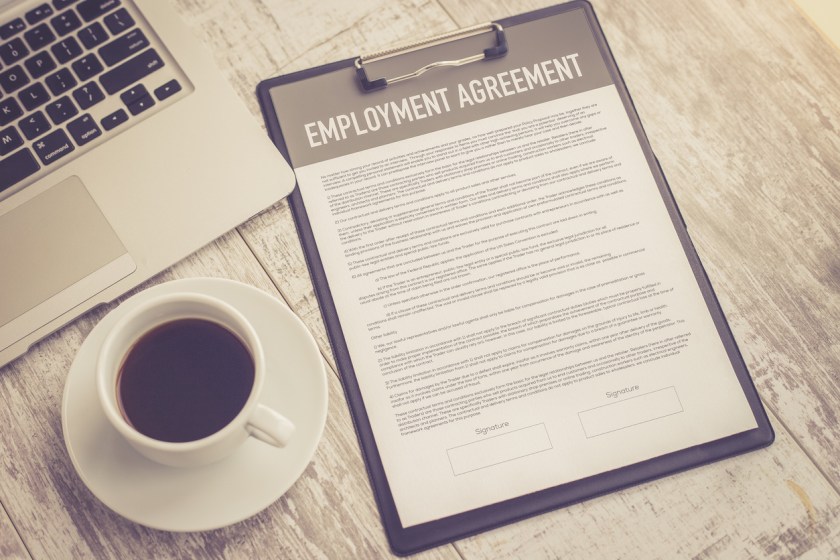We asked an accountant and business consultant to give us the lowdown on the government’s allowance that could save thousands of jobs.
Editor’s note: Since this article was first published, Job Keeper registrations have now closed and elective surgery bans have been lifted. The information below may no longer be up-to-date. Please check the ATO website for the latest changes and updates.
Moreover, mobile beauty services are now allowed as well as retail services. If you find yourself struggling mentally with the current situation, read our psychologist’s guide on how to cope during the COVID-19 crisis.
Last week’s announcement of the $130 billion Job Keeper stimulus package has been a game changer for a lot of businesses owners, sole traders, and employees who have either been stood down already, or were fearing losing their job in the near future. To reiterate, any business that has lost 30% or more of their revenue in recent weeks can apply for the Job Keeper package, which will subsidise $1,500 per employee per fortnight.

What sounds like a great help and may be what you need in order to keep your staff on board, also raised a lot of questions from people in the industry over night. We understand that there are countless scenarios and that every business is different, so we chatted to business consultant and Managing Director of Aide de MD, Charlotte Rimmer, as well as Accountant and Director of Mair Mansfield & Co, James Mansfield to get some of your questions answered.
When in doubt, always talk to your accountant about your specific situation to see what is best for you and your business. Hopefully, some of your confusion can be alleviated after reading our Q&A:
What is the first step a business owner or sole trader should take and what information do they have to submit to the ATO?
CR: Understand whether you’re eligible. If you can prove that your revenue in March 2020 is at least 30% down from March 2019 due to Coronavirus, you’re eligible and can apply for Job Keeper here. If not, wait for April, it may be a more obvious downturn.
JM: This also applies to sole traders and trade partners.
What should people that have been stood down ask their (former) employers?
CR: Enquire if they could be re-instated and are thus eligible for the payment, as long as they were employed prior to March 1, 2020.
Is the $1,500 per fortnight dependent on your spouse’s wage?
CR: No. Your partner’s wage is irrelevant to the Job Keeper allowance.
Is there tax withheld on those payments?
JM: Yes, the employee will get the net amount into their bank account.
What happens to staff that are currently taking paid or unpaid annual leave?
CR: They should discuss this with their employer, I would probably recommend they return to work.
Since payments won’t be made until May, what do you suggest employers do until then to keep their staff on?
CR: Cut back hours and pay, think laterally, use for example online sales, remote advising, and have your staff do things like cleaning, stocktaking, and training.
JM: The ATO is not going to give you the $750 a week if you didn’t pay your employees [in April] because they were stood down. You need to re-engage those employees now and pay them out of your cashflow for this month, and then the government will be reimbursing you.
What happens after six months when the government’s payments stop but the employer is still struggling financially?
CR: This is unpredictable and will be a situation that is unique to each business owner.
Is there any obligation for an employer to pay staff more than $1,500 a fortnight?
CR: No, there isn’t.
Does the employer have to pay superannuation?
CR: This is optional, not compulsory.
Would casuals or part-time workers who usually make less than $1,500 a fortnight still get the full amount?
CR: Yes, as long as they can prove as part-time that they were employed prior to March 1, and as casual, that they were employed for the previous 12 months.
Can the ATO impose the payments onto an employer or is it up to each employer to register?
JM: As far as I can understand the employer must register so the employees can register. So, if the employer decides he/she doesn’t want the payment, or he/she wants to close the business down he/she can choose to do that. I guess the employees could go to fair work and complain. But at the moment it’s the employer’s responsibility to register and pay.
If you have any questions about your specific employment situation, it is best you talk to your accountant and also have a look at the government business help website and/or the fair work website.
Read about how the first government stimulus package can help your business, and if you need a little pick-me-up, we’ve talked to four clinic owners on how they’ve adapted their businesses through this crisis.
Did you know that you can read our quarterly magazine online and for free? Read about business advice, the latest and greatest in the industry and inspiring profiles below:
There are 5 ways you can catch up with SPA+CLINIC:
- Our quarterly print magazine, delivered to your door. Subscribe here.
- Our website, which is updated daily with its own completely unique content and breaking news.
- Our weekly newsletter – free to your inbox! Subscribe here.
- Our digital magazine – our February issue is above, or click here to view previous issues.
- Our social media – see daily updates on our Instagram, Facebook & Linkedin





